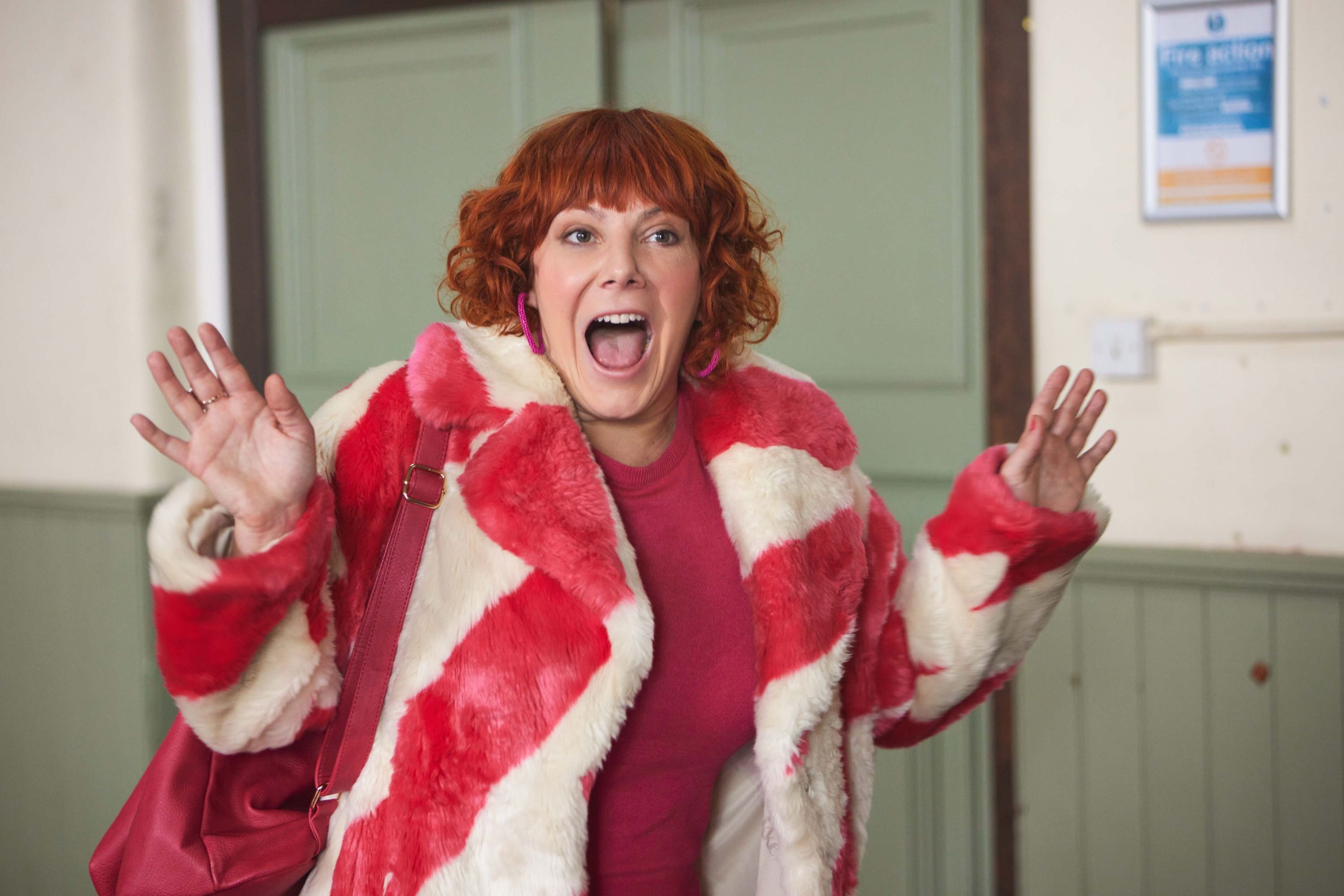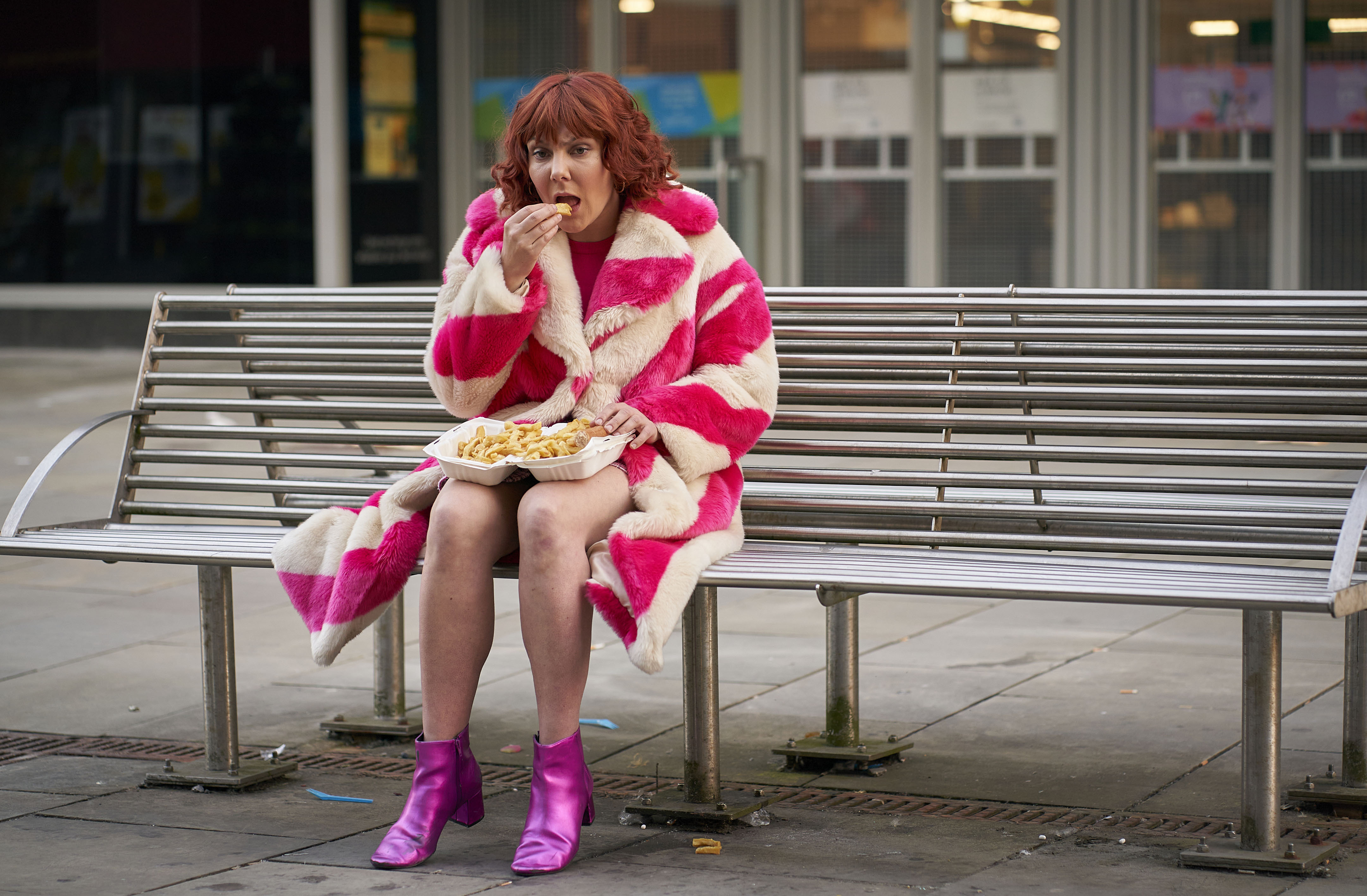
Audiences are in love with Alma's Not Normal, which manages to be both hilarious and heartbreaking. They're also wondering if it's based on a true story - here's what we know about the semi-autobiographical inspiration behind the comedy.
It's the sign of a brilliant TV show when you find yourself laughing until you cry one moment, before your heart breaks in two and your tears are tinted with genuine sadness the next. Alma's Not Normal manages just that - and audiences can't get enough. Attempting to flee from far too many disappointments and disasters than she should experience in one lifetime, Alma is constantly hindered by the ragtag, eccentric people in her life dragging her back down.
But Alma marches forward, always reaching for the fabulous life she envisaged for herself. With the excellent writing and instant connection viewers have with the characters, many have been left wondering if the series is based on a true story - read on to find out if there's any truth to the outrageous yet touching tale.
Is Alma's Not Normal based on a true story?
Alma's Not Normal is a semi-autobiographical account of Sophie Willan's (Alma) life. Although not entirely true, many elements of her life and upbringing acted as inspiration for the show. Like Alma, Sophie Willan spent time in care due to her mother's drug addiction, and was looked after intermittently by her grandmother in between periods with foster parents.
Also reflecting Sophie's real experience, her grandmother, Denise, was one of the only constants and only real champions in her early life. Denise sadly passed away while filming for season one of Alma's Not Normal was underway. This real event was woven into season two, when Sophie's on-screen grandmother, Joan, develops cancer.
Also mirroring Sophie's real life, she really did work in the sex industry to make money, similarly to Alma becoming an escort to make ends meet. Life also meets art when Alma joins a theatre company in the hope of being discovered and becoming a star. While Alma is still yet to make it, Sophie Willan has really become the star her childhood self had always dreamed of.
Speaking to the Big Issue, Sophie said, "A lot of ‘care experienced people’ are people-pleasers. Because you’re literally taught if you don’t keep these people [foster carers] happy, you are not going to be loved."
She added, "You end up being a perfectionist in every single bit of you because you’re really scared of being abandoned, and that’s exhausting. Not everybody can cope with that and that’s why I think we have a lot of… ‘stuff’ happening within the care community where people go AWOL. And that’s because we don’t have a system that supports us, but internally I’d say, it’s because it can be really knackering to feel like you have to be perfect to be loved."

Will there be a season 3 of Alma's Not Normal?
It appears Alma's Not Normal will end with season 2, with Sophie Willan strongly hinting at this during a recent podcast appearance. Speaking to Deborah Frances-White on her Guilty Feminist podcast, Willan alluded to Alma evolving and there being no more of her story left to tell.
The actress said that by the end of series two "You won't see her [Alma] repeat the same patterns. Basically, they're not getting a Series 3. I'm done. I just want to have some fun. Navel-gazing into your own trauma's quite knackering".
Sophie suggests the show will wrap up with a Christmas special, adding "I want to do a Christmas special, they've commissioned the script. But I don't want to do another series. I want to wrap up the journey. She is no longer a situational comedy protagonist. They have to not learn, that's the point. She's Del Boy at the end when he gets boring and rich."
Her next project, with fellow actress Maxine Peake, will be a satirical take on the 1612 Pendle witch trials. Speaking The British Comedy Guide about the premise, Sophie says "We're interested in the satire of it, how does it relate to now? The king at the time [James I] was quite Trumpite really... There's loads of humour in it as well. And also, lots of politically relevant things about how we're treating women and also people and refugees, working class people. There's lots there."







